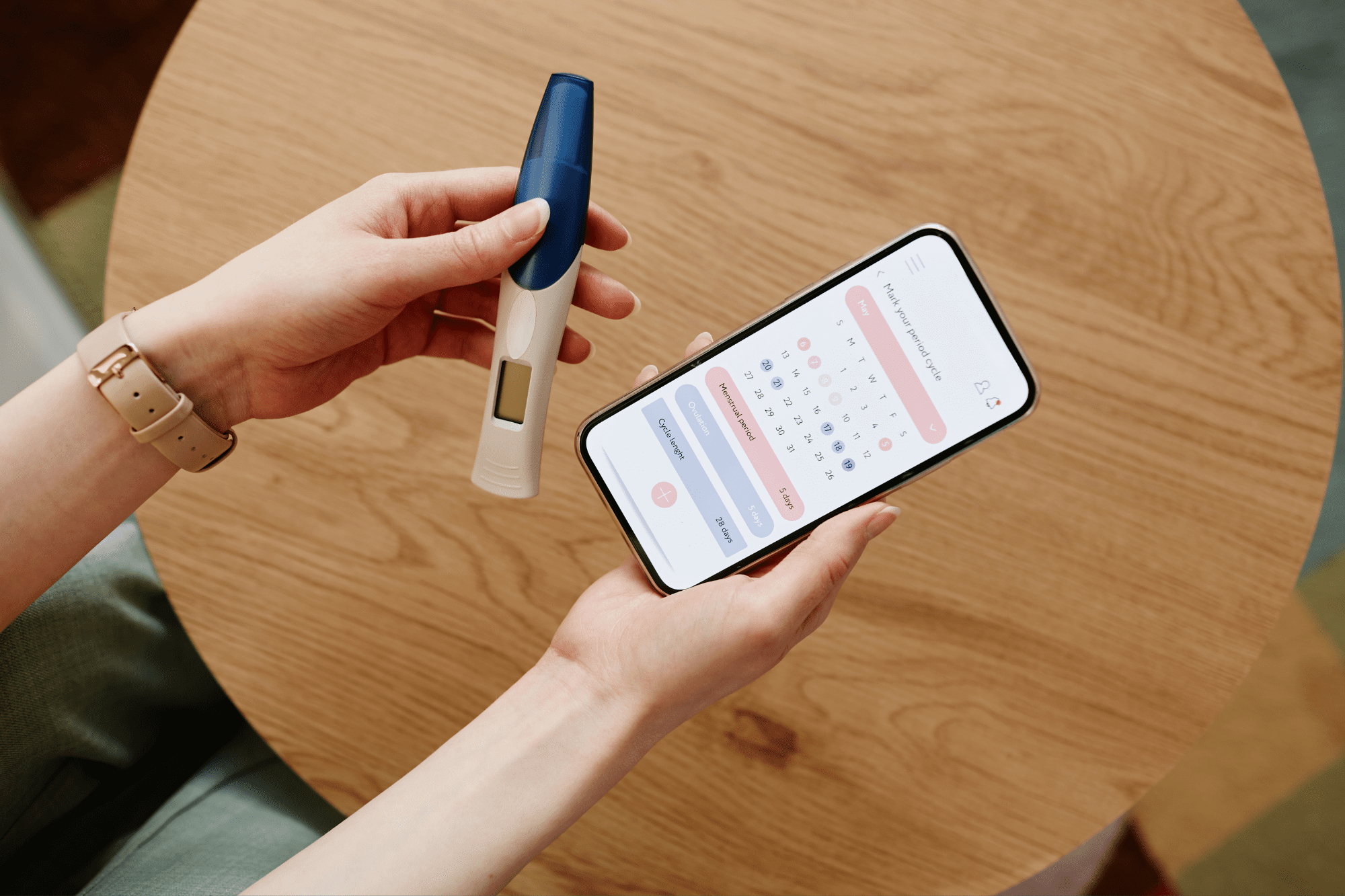Natural family planning (NFP) is a great way to prevent unplanned pregnancies. When used correctly, this form of birth control has a nearly perfect success rate. It also helps women understand and work with their bodies, rather than fighting their natural processes.
Many modern birth control options, however, treat a woman’s fertility like a disease. They see a woman’s cycle as something to be controlled rather than a natural process to understand. Additionally, most contraceptive pills, injections, and devices change your hormones, causing uncomfortable—and even dangerous—side effects.
You can prevent pregnancies without the downsides caused by hormonal birth control. Keep reading to learn how.
What is natural family planning (NFP)?
Natural family planning is a natural birth control method. To avoid pregnancy, you can use several signs to track your fertility. This allows you to recognize when your fertile window, or the period when you are most likely to conceive, opens. During your fertile window, you can either avoid sex or use condoms to prevent pregnancy.
The signs that a woman is ovulating and more likely to get pregnant include:
- Changes in cervical mucus – Your mucus, or discharge, changes to help sperm reach the egg just before you ovulate. When you have a lot of clear, stretchy, and slippery mucus, you are likely about to ovulate.
- Rising body temperature – A woman’s body temperature rises after she ovulates. Tracking these changes allows you to know when you are more likely to get pregnant.
- Hormonal changes – When your fertile window begins, your body will produce more of two hormones, estrogen and luteinizing hormone (LH). You can use LH strips to measure the amount of these hormones in your urine and track the peak.
Every NFP method requires you to pay close attention to your reproductive cycle. You have to carefully and consistently track the signs of your fertility over several months. Along with helping you prevent unplanned pregnancies, NFP allows you to understand and work with your body. Natural family planning is also a great way to increase your chances of getting pregnant when you and your partner are ready for kids.

Is natural family planning a good way to avoid pregnancy?
Yes, evidence shows that natural family planning is a reliable way to avoid pregnancy. When used correctly, research shows that NFP is equally or more effective than many types of birth control. One NFP study found a 99.5% success rate. Another study found a 99.6% success rate.
When used perfectly, male condoms have a 98% success rate. Female condoms work 95% of the time. The birth control pill prevents pregnancy 99.7% of the time when used perfectly. Unfortunately, condoms can cause discomfort during sex and may break. Birth control has several side effects, including depression, headaches, moodiness, blood clots, high blood pressure, and stroke.
NFP requires more planning, but it doesn’t cause any side effects or discomfort.
What are the types of natural family planning?
The Billings, Creighton, Marquette, and Sympto-Thermal methods are the most common and reliable types of natural family planning.
Billings NFP method
The Billings method focuses on cervical mucus. Users learn to identify the four types of mucus they produce throughout their cycle. They use changes in cervical mucus to understand when they are fertile.
Creighton NFP method
This method is a modified version of the Billings method. The Creighton method uses systematic, standardized charts to track a woman’s cervical mucus and cycle. It may be easier to use this method consistently.
Marquette NFP method
The Marquette method focuses primarily on the hormone levels found in a woman’s urine. Users test their levels every day to understand where they are in their cycle. When using this method, you can also track your body temperature and cervical mucus.
Sympto-Thermal NFP Method
This natural family planning method tracks basal body temperature and cervical mucus to identify your fertile window.
You can use any combination of these methods to prevent pregnancy.
Is natural family planning the same as the rhythm method?

The rhythm method is a type of natural family planning, but it’s the most basic and least reliable option. The rhythm method, also called the calendar method, assumes that every woman has a 28-day cycle. If she does, she will start her period on day one and ovulate on the 14th day of her cycle. The rhythm method assumes that her body follows this exact cycle every month.
In reality, very few women have a regular cycle. If you ovulate early or late each month, you have a high chance of getting pregnant while using this method. Plus, many women don’t have a period every month. They can’t reliably predict when they will be fertile, increasing the risk of a surprise pregnancy.
Thankfully, anyone can use better methods of natural family planning, even if you have an irregular menstrual cycle. Rather than forcing your body to fit a typical cycle, NFP listens to your fertility. It supports your natural cycle and works in harmony with your health.

